After he earns his Doctor of Veterinary Medicine from Texas Tech, Austin Byrd will take more steps needed to provide specialty care that’s unavailable in West Texas.
When asked what he wanted to be when he grew up, even from a young age, Austin Byrd never wavered from his answer: a veterinarian.
Growing up in small Texas towns such as Gorman and Claude, he raised show lambs and goats and judged livestock. From those ventures his animal caregiving developed into a passion.
But it was when his little brother had surgery on his clubfoot that Austin discovered his interest in orthopedic surgery.
“I remember being really fascinated by the surgery the doctors did,” he recalled. “They were always super nice, trying to explain things to me as much as I could understand when I was younger.”
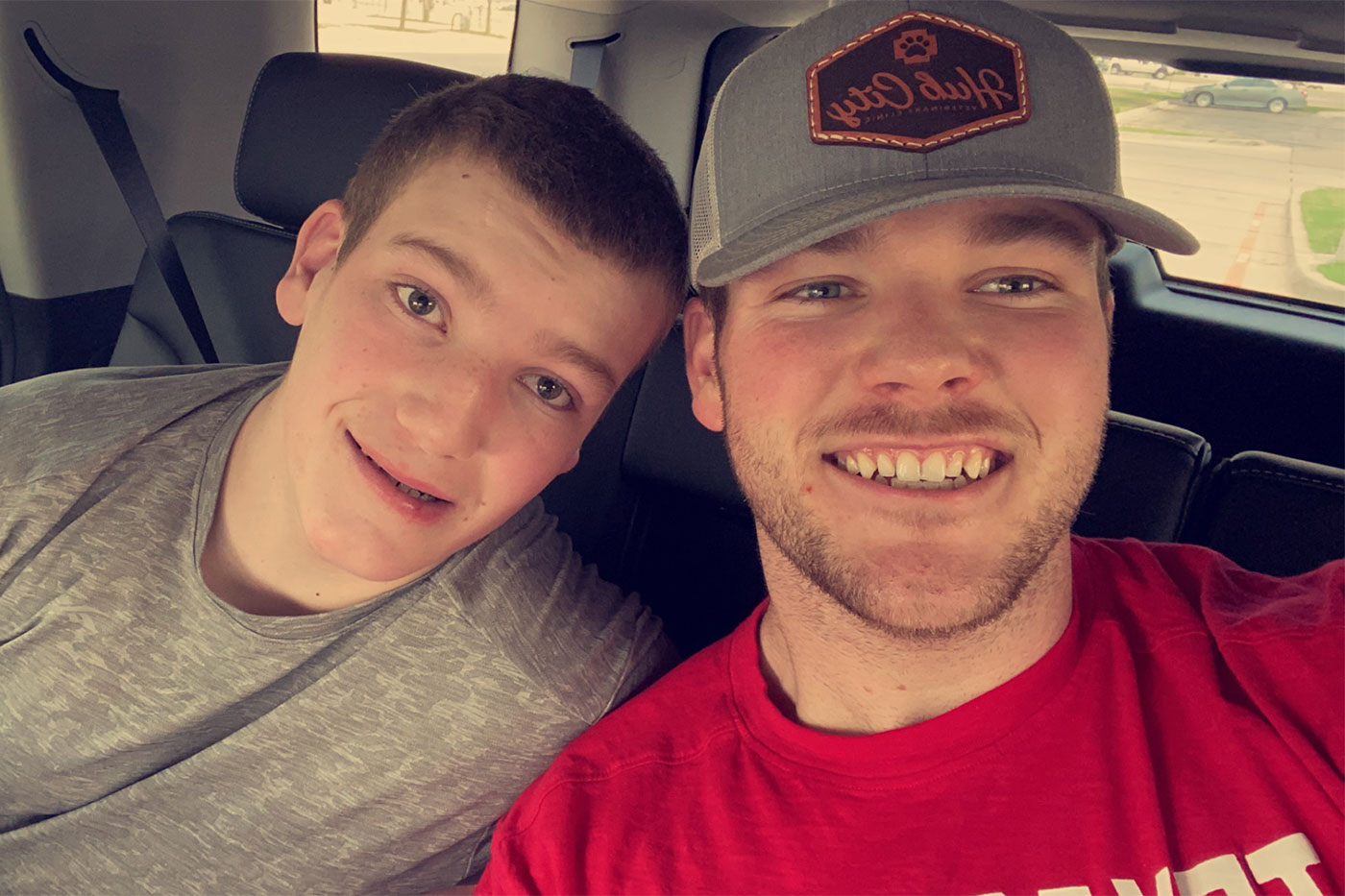
Austin could see the impact the procedure had on his brother’s mobility and quality of life and wished he could make such a difference for animals one day. He realized this could become a possibility while he was earning his animal science degree at Texas Tech University, working as a veterinary technician for two clinics in Lubbock.
With his eyes opened to possibilities within the veterinary medicine industry, Austin decided he wanted to become a board-certified small animal veterinary surgeon. The first step in this master plan was graduating from Texas Tech in 2021 – which presented him the perfect opportunity to continue his Red Raider journey by applying to be part of the first class of the School of Veterinary Medicine.
Austin could tell from the application questions that his values meshed with the school’s focus on serving rural and regional communities, so much so he calls it “a God thing,” or divine intervention. Meeting the professors and other faculty during his interview further solidified Texas Tech as his top choice for veterinary school.
“Everything just felt right,” he said. “I could tell these were people that I wanted to help model the type of career I want to have. They were genuinely good people who legitimately cared.”
These sentiments only increased Austin’s nervousness following the meeting. His mind was fixated on whether he would stand out and be selected from the mass of other applicants.
But the odds were in Austin’s favor. Those on the admissions committee agreed that with Austin’s background and ambitions, he could propel the school’s purpose forward.
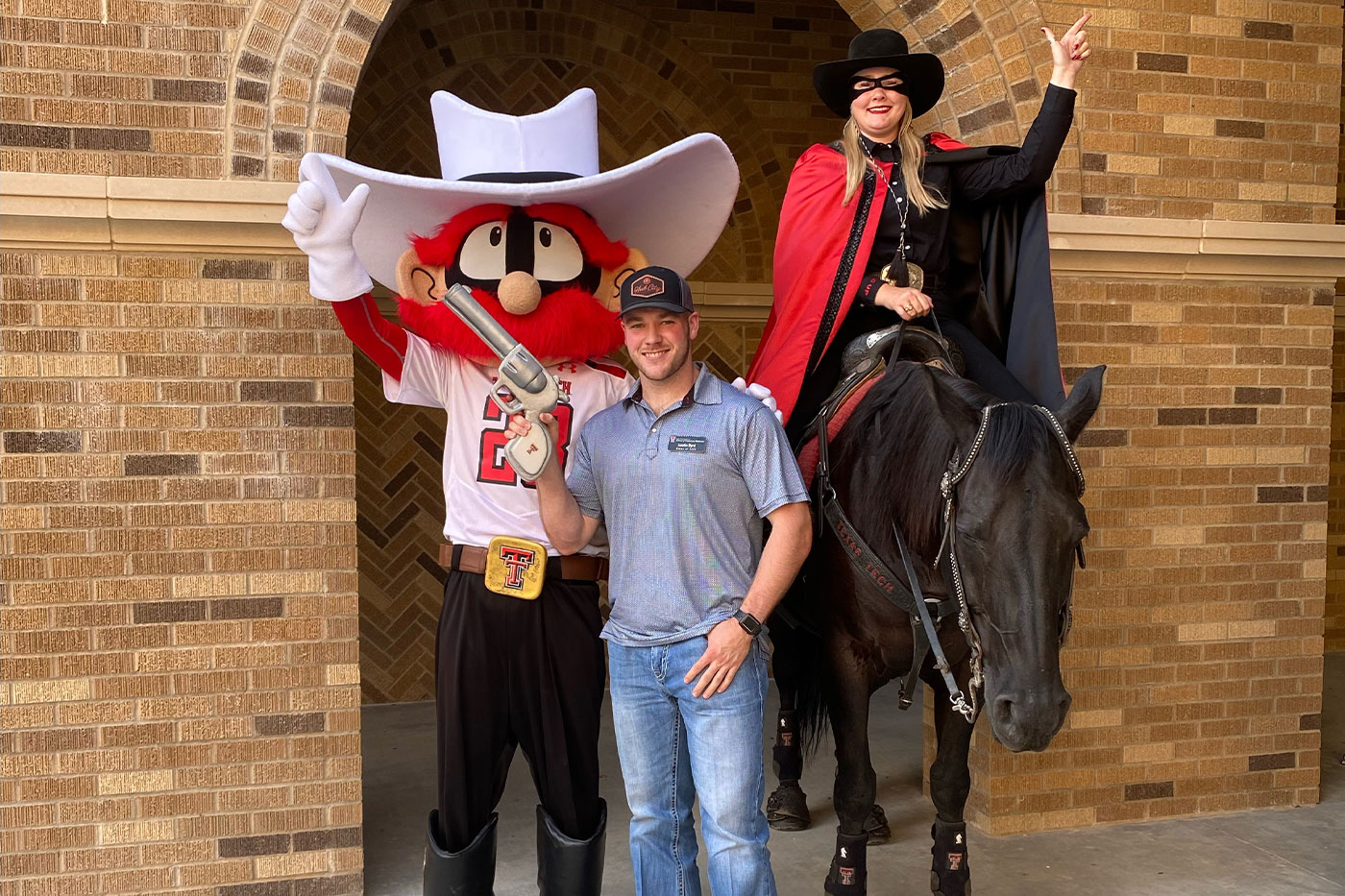
Dr. Nancy Zimmerman, the School of Veterinary Medicine’s clinical programs special projects coordinator, still remembers that first impression.
“He embodies the core values of West Texas and those fostered by the Texas Tech School of Veterinary Medicine: integrity, community, kindheartedness, grit and inspiration,” she said. “Austin made it clear in his application for admission that he holds deep reverence for West Texas and a strong passion for small animal veterinary medicine.”
By fall 2021, Austin accepted the challenge to meet those expectations – stepping onto the Amarillo campus with full knowledge that his life was about to change.
Value in Veterinary School
Austin quickly learned he had the right first impression of the school’s faculty and leadership as he shared with them his nontypical aspiration to become a small animal surgeon.
“Everybody bent over backwards to help make it to where I wanted to go,” he said. “Not one single time did anybody try to tell me not to do it. They were just like, ‘Let’s see if we can help make an opportunity for you.’”
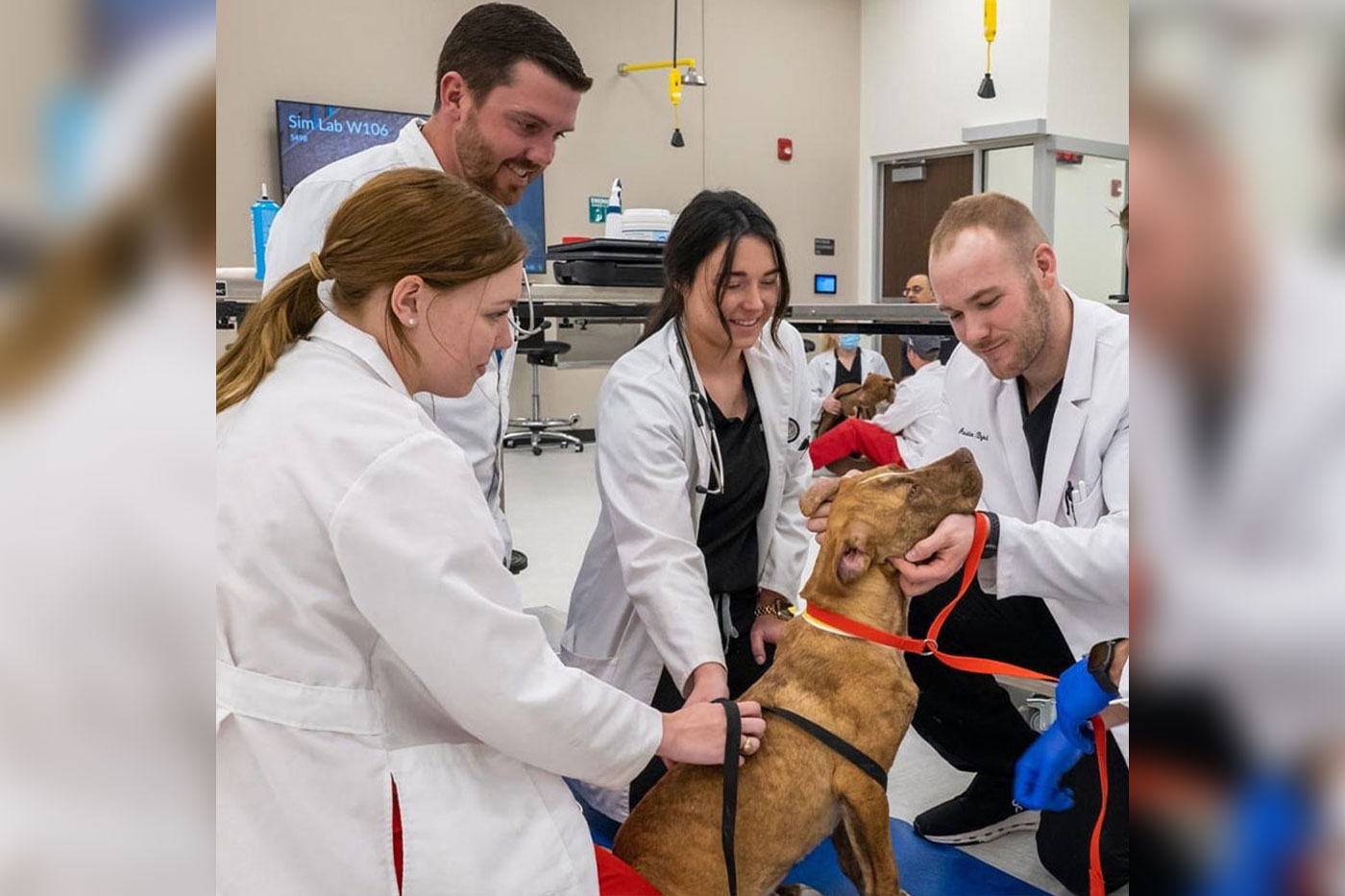
This support was critical during Austin’s first year – a time he said was nearly impossible to navigate. He experienced an information overload with an overwhelming transition from an undergraduate class load of 12 -15 hours to 22 hours a semester.
He describes it best as trying to drink from a fire hydrant.
“It doesn’t make a lot of sense until you’re doing it,” he said with a laugh. “The course content wasn’t terrible, but there was so much content in every single class that it was really hard to learn to adjust.”
Austin had the added pressure to comprehend his study material not just at a level where he could pass a test. It was essential for him to garner a deep understanding of each subject because the topics and skills would build on each other, getting more complicated and in-depth with each lesson.
He often wondered how he would ever have a life outside of school with all the time spent studying. All jokes aside, Austin was thankful his family understood the step he took back from family obligations.
But he wasn’t alone, faculty members assured him.
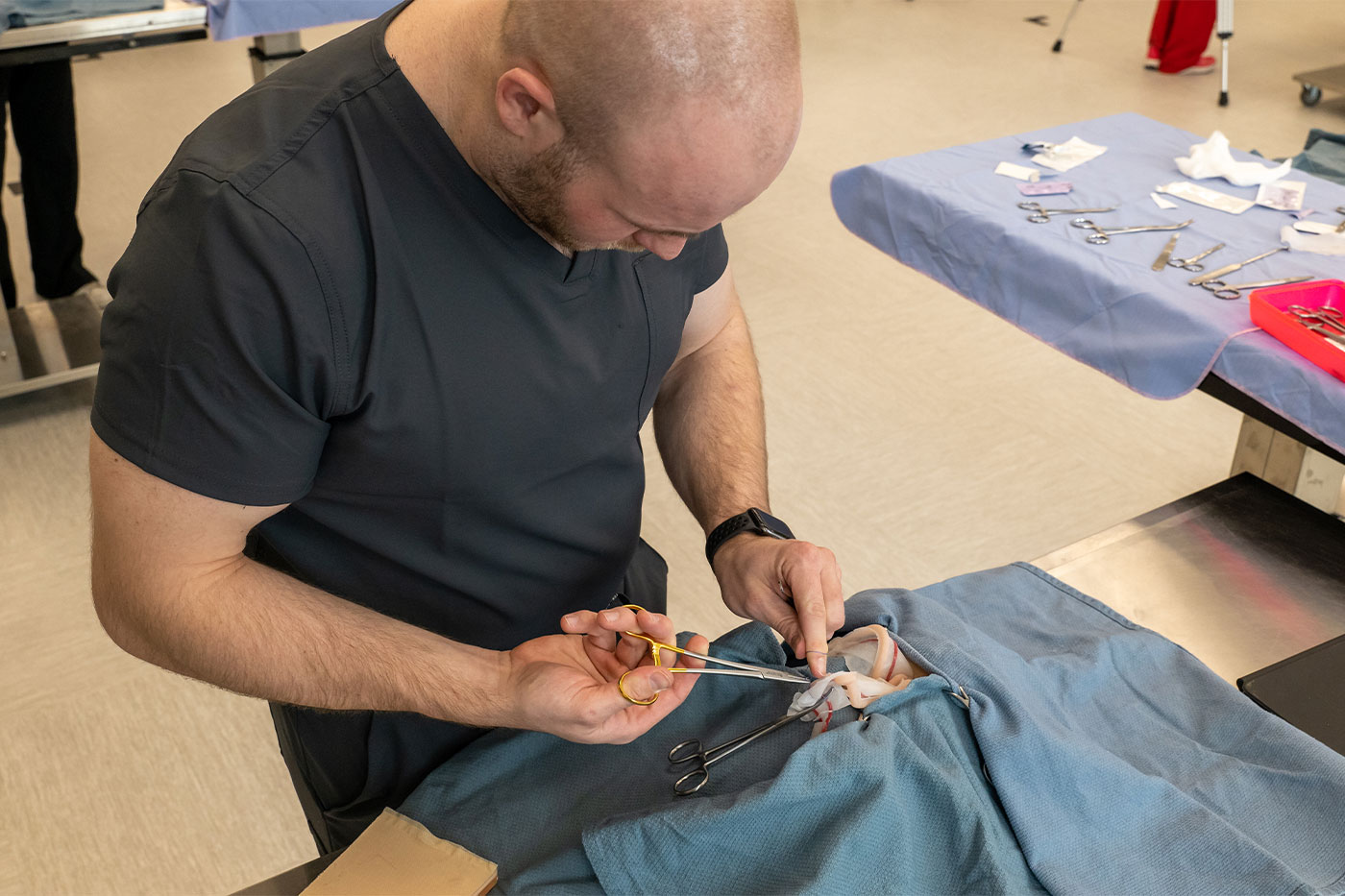
“Again, not one time did anybody ever tell me that I couldn’t do it or that this just wasn’t for me,” he said. “They were constantly like, ‘How can we modify this to help you? Where are your weak points?’ It was a ‘help us help you’ kind of thing, and there’s not another school that would have done what Texas Tech did for me.”
Through these positive affirmations from faculty, his peers and family, Austin finally began to gain his footing as a veterinary medicine student, allowing him to step forward as a leader when his class needed a president.
“I’ve always had the mindset that if there’s something you want to change or if there’s something you want to do, then you should do it,” he explained. “I have been very fortunate that my class supported me when I could explain things or help make a situation better.”
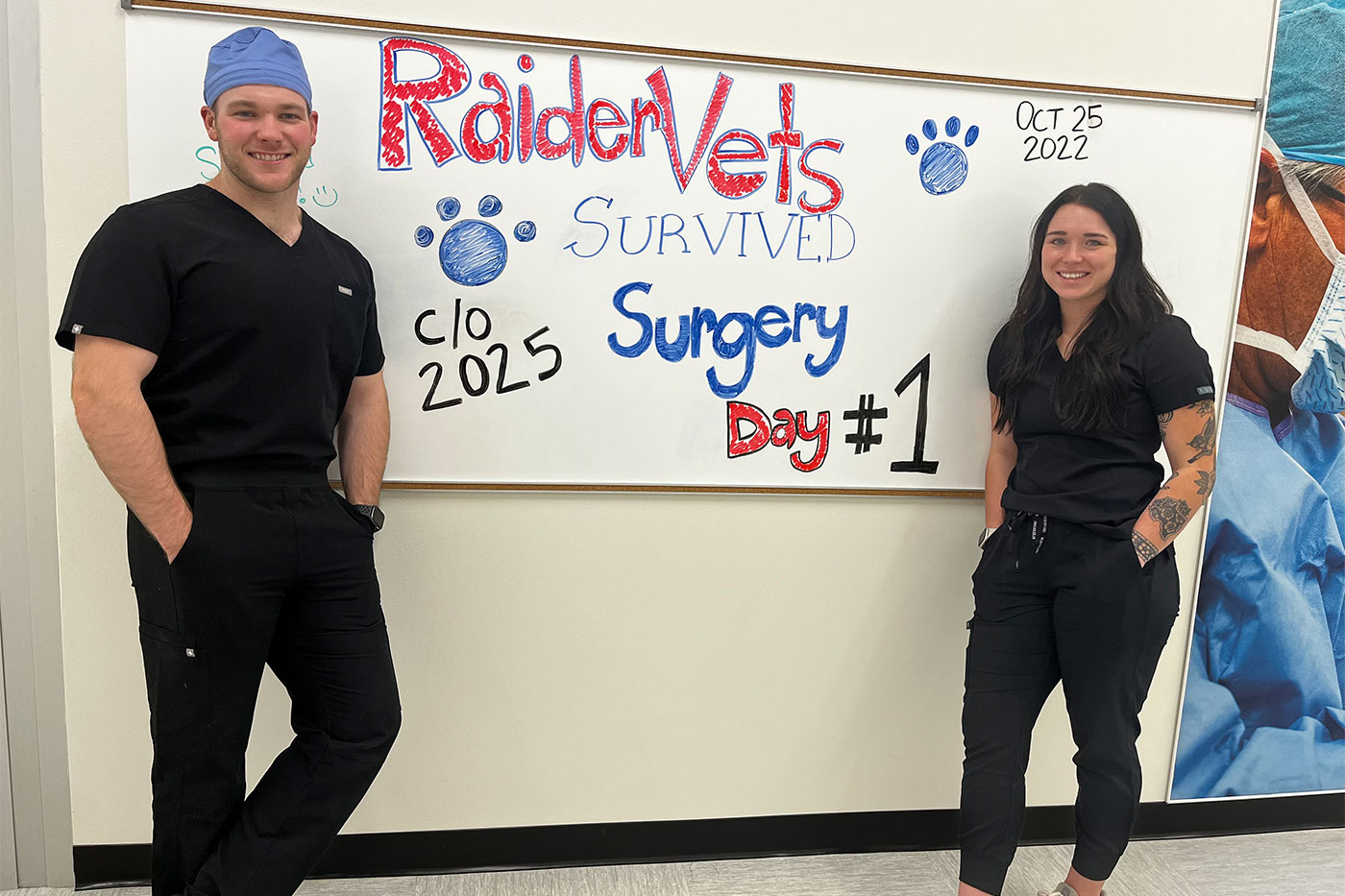
Like pioneers, Austin and his classmates communicated feedback about methods and tactics that worked best for the program and appreciated how the faculty listened to improve the student experience of the next generations of RaiderVets.
Zimmerman has been impressed by the sense of unity Austin has helped create during this process.
“Austin worked through the challenges presented by a developing and evolving educational curriculum and expanding school program while fostering community among his classmates and bridging communication between different groups of people,” she said. “He has matured as an individual and developed leadership and communication skills as he achieved all the milestones of the veterinary curriculum.”
Cherishing his Clinical Year
Austin knew the clinical year would provide a unique experience as the School of Veterinary Medicine deviated from the traditional teaching hospital to match students with 10 of more than 125 veterinary practice partners across Texas and New Mexico, rotating through each for four-week stretches.
This could seem like a daunting concept to some but not to Austin and his classmates.

“We all are very much go-getters,” he commended. “We are willing to be in the trenches to try and figure things out, and I think because we work like that, everyone around us is willing to help us get to where we want to go.”
During a White Coat Ceremony in March 2024, Austin evolved from a student to a clinician – a transition he calls a dream come true. The opportunity to learn hands-on and apply his knowledge to real cases finally put him in his element.
“The clinical year is perfect for people like me, who aren’t necessarily the best in the classroom but really excel working with people and figuring out problems that are happening right in front of you,” he noted.
The first practice partner on Austin’s list was Liberty Hill Animal Hospital in Liberty Hill, Texas. He was met by Dr. Matthew Lane, a welcoming clinician who motivated Austin and created a fun, exciting learning environment.
Lane provided Austin with advice he will reference far beyond his clinical year.
“I had a memorable conversation with Austin about the importance of holding onto his purpose, and I’m confident that his strong-minded determination will lead him to achieve great things in veterinary medicine after graduation,” Lane said. “Don’t let anyone ever take your purpose, Austin.”

Austin gained many takeaways from Lane and the other practice partners he shadowed at his clinical rotations that followed. The different techniques he observed reaffirmed his childhood dream career fit his talents and interests.
What became even more concrete during this time was his focus on small animal orthopedic surgery – specifically joint replacement for dogs and cats. In what he calls a pivotal moment for him, Austin got to experience the difference he could make in an animal’s life once he became reacquainted with a Siberian Husky mix he first met as a veterinary technician.
Fendi was a playful puppy back then, but after she turned one year old, she began moving slowly and started acting strangely – yelping out in pain on occasion.
After a series of X-rays and other tests, Austin helped diagnose her with hip dysplasia.
“She wanted to play, but she couldn’t play like we would expect her to,” Austin said. “She was in so much pain that just walking and doing her everyday life was really challenging for her.”
To alleviate this condition, Fendi was referred to Dr. Sarah Israel in San Antonio, another one of Austin’s mentors. He had the privilege of watching her perform the surgery from start to finish, getting to scrub in and even help at points.
Within 24 hours of this surgery, Fendi was a completely different dog – much as his brother was a different kid after his clubfoot correction.
“You could tell she felt such extreme relief,” Austin said. “It was crazy to see the joy and the difference in her face just within one day of surgery.”
Austin had the chance to form a friendship with Fendi’s “mom,” and every now and then he receives photos and video updates about her miraculous quality of life. Being a small part of the improved wellbeing in patients like Fendi has fueled him to pursue another four years of school after his graduation in May 2025.
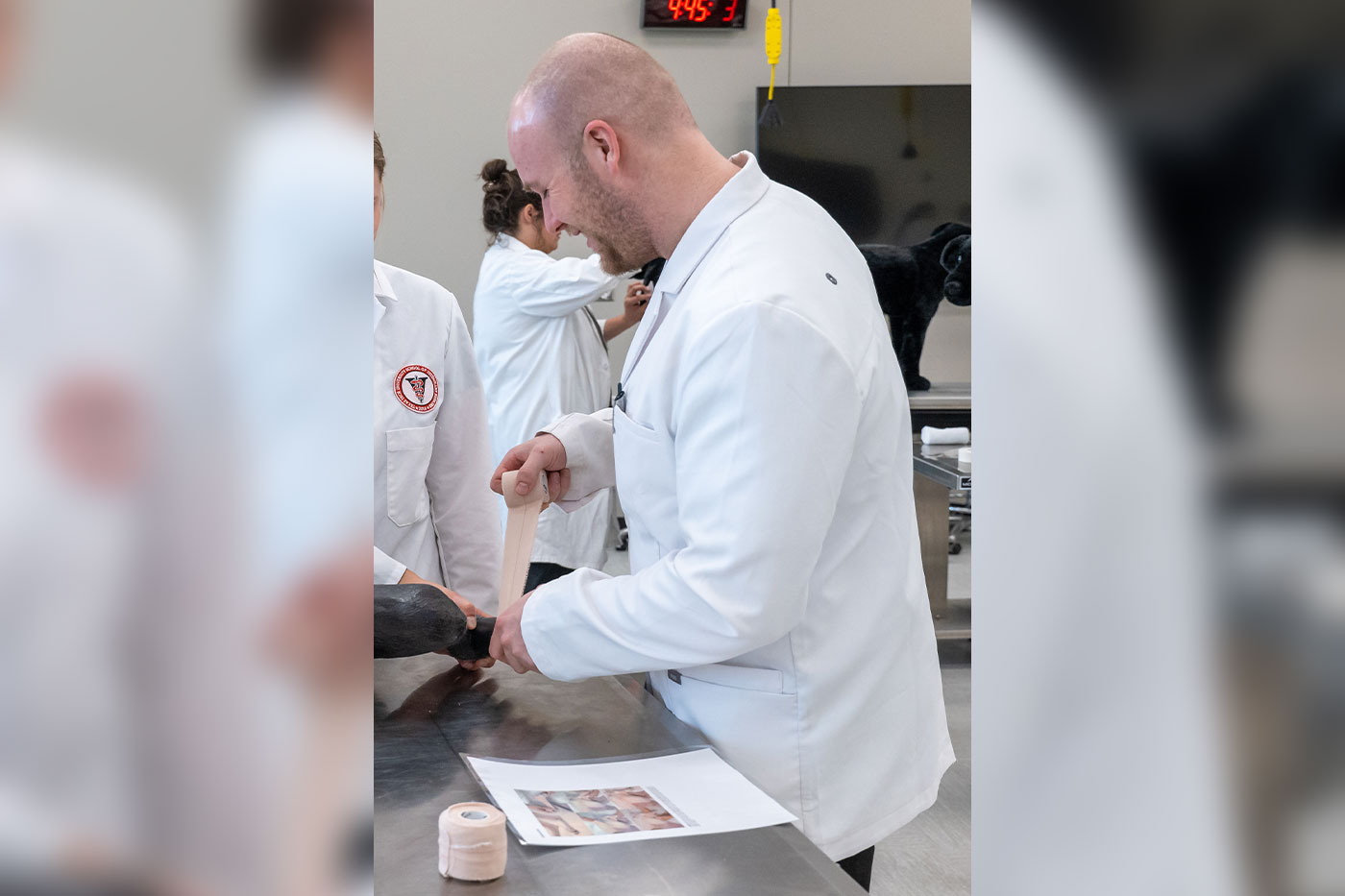
This small animal internship in San Antonio will allow him to rotate through specialty services at several different animal hospitals followed by a surgical residency. Austin describes the process as a similar intensity to becoming a medical doctor, but he is hopeful by sticking through the process, he can perform specialty surgeries in the Lubbock area one day.
“That’s where I’ve always considered home for me,” he shared. “I would really like to start a referral and specialty clinic there, because currently the closest specialty care you can get from the Amarillo or Lubbock area is Dallas or Oklahoma City. So, I would really love to come back home and try to meet the needs of the people who’ve supported me and help the community that’s given so much to me.”
Graduating with Gratitude
Austin has spent more time on such reflection as he nears his May 18 graduation, recognizing he has a long list of difference-makers to thank for their aid along the way. Most of those supporters – notably his family and the brother who inspired his calling in orthopedic surgery – will be clapping for him at the Amarillo Civic Center ceremony as he becomes Dr. Austin Byrd.

That moment will be equally gratifying for the faculty and practice partners who have invested time developing the students into day-one-ready practitioners.
Zimmerman is one of those professors Austin considers instrumental in his success. She has taken the time to share her perspective as a board-certified small animal surgeon with him, so much so that he regards her as one of his heroes.
She feels confident he will go on to deliver quality small animal surgical care that upholds the high standards and core values he has learned at Texas Tech.
“Austin will continue to make a difference after graduation, just as he has made a difference everywhere he has been and in the lives of all those who know him,” she praised. “Austin’s optimism, inner fortitude, compassion, indomitable mettle and insatiable curiosity will make a positive difference for each patient, client, co-worker and colleague.”
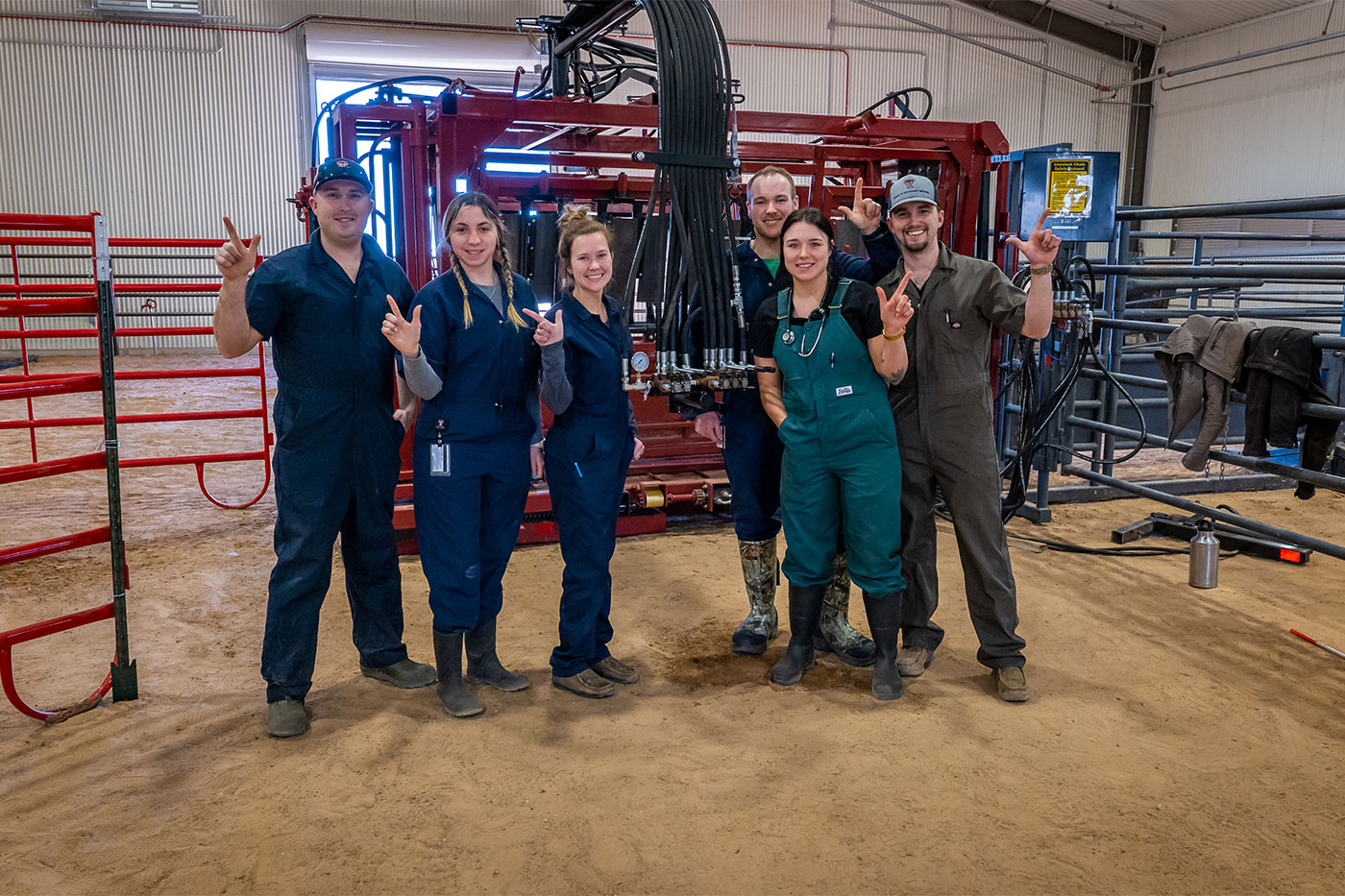
Austin feels a shared sense of pride in his fellow classmates, especially as he has learned about the jobs they’ve accepted. Many of them will return to rural and regional communities in or around their hometowns, just as they’ve always wanted, and he anticipates they will become regarded as great practitioners.
These high expectations will undeniably weigh on the shoulders of the 61 classmates as they cross the inaugural School of Veterinary Medicine graduation stage in a historic feat. But they fully expected this and look forward to the chance to prove their competence, compassion and confidence they inhabit as RaiderVets.
In Austin’s case, becoming a Texas Tech alumnus for the second time, while helping his university accomplish a milestone that will impact the small towns that helped forge him, is already considered an achievement of a lifetime.
“It feels like this is a defining moment – that everything has paid off,” he resolved. “It’s been an invaluable experience, something that I’m super emotional, honored and proud to have had a small part of.
“I think we’re going to really do some amazing things and make a huge impact in the veterinary world, and I can’t wait to see where we go from here.”

